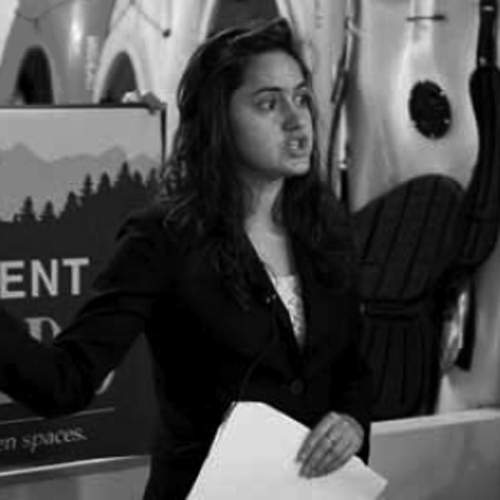Data–Pop Alliance has been conducting ongoing research on Big Data, climate change and environmental resilience. With funding from the UK’s Department for International Development (DfID), we published a synthesis report evaluating the opportunities, challenges and required steps for leveraging the new ecosystem of Big Data and its potential applications and implications for climate change and disaster resilience. The report fed into the World Humanitarian Summit to be organized in Istanbul in May 2016.
This is the third video in a series of companion pieces that offer insights from the synthesis report.
This companion video to the synthesis report “Big Data for Climate Change and Disaster Resilience: Realising the Benefits for Developing Countries,” was funded by UK’s Department for International Development (DfID) was designed to probe experts to speak more about their work and their ideas about the potential and challenges of Big Data.
Titled “Big Data for Climate Change and Disaster Resilience: Who Needs to Get Involved to Tap its Potential? ” this video identifies important actors needed at the intersection of Big Data, climate change, and disaster resilience. The video features three experts: Emmanuel Letouzé, Linus, Bengsston, and Bessie Schwarz.
Emmanuel frames Big Data outside of its volume, emphasizing the capacities and communities that are needed to create Big Data as a social phenomenon. Linus points to academic researchers, providers of new types of data, and the operational agencies as the needed actors for Big Data’s potential to be realized for climate change and disaster resilience. Bessie identifies local community as those who need to be involved in the assessment of vulnerability in resilience in those locations in order to produce simple solutions to climate challenges.

Emmanuel Letouzé (@ManuLetouze)
- Emmanuel Letouzé is the Director and co-Founder of Data-Pop Alliance. He is a Visiting Scholar at MIT Media Lab, a Fellow at HHI, a Research Associate at ODI, a Non-Resident Adviser at the International Peace Institute (IPI). His interests are in Big Data and development, economic demography, conflict and fragile states, poverty, migration, official statistics and fiscal policy.

Linus Bengsston (@flowminder)
- Dr. Linus Bengtsson is Executive Director and Co-founder of Flowminder Foundation. He pioneered the use of mobile operator data to monitor population displacement during the 2010 Haiti earthquake and to predict the spread of cholera during the same year in Hati. His academic research at Karolinska Institute, Stockholm, Sweden, focuses on public health applications of information technology in low-income settings.

Bessie Schwarz (@Bessieschwarz)
- Bessie Schwarz is the Co-Founder of Cloud to Street and a Data-Pop Research Affiliate. She is a political and communications strategist developing innovative methods for engaging and mobilizing citizens on environmental issues. Bessie is currently the Communications and Outreach Director for the Yale Project on Climate Change Communication.
For more on our series:
Read the summary of the DfID videos and podcasts
Watch the full playlist of videos


![M002 - Feature Blog Post [WEB]](https://datapopalliance.org/wp-content/uploads/2025/10/M002-Feature-Blog-Post-WEB.png)





